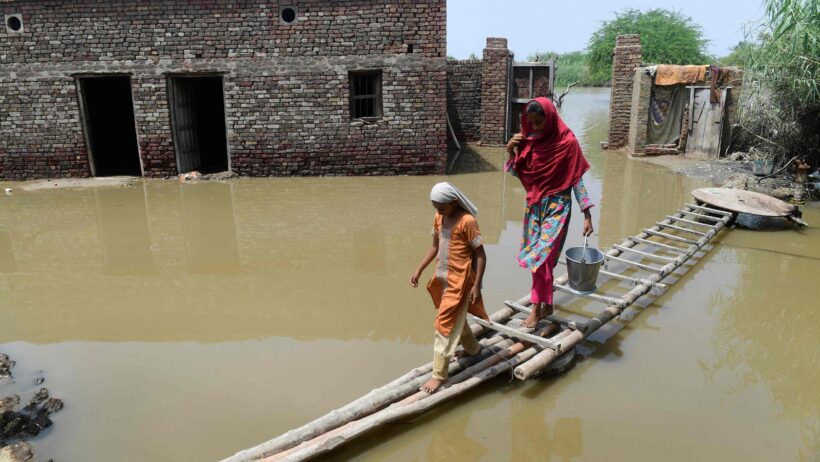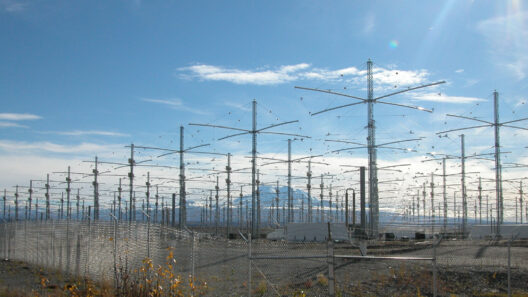The climate crisis, with its burgeoning intensity and ramifications, stands as one of the most pressing challenges of our time. This predicament is not confined to the borders of any single nation; rather, it permeates international boundaries, affecting ecosystems, economies, and communities worldwide. The phenomenon of global warming—exacerbated by anthropogenic activities—has prompted a collective realization: climate change is indeed an international problem, and its implications resonate far and wide.
At the crux of this discourse lies the observation that climate change transcends geographical limitations. For instance, while the melting glaciers in the Arctic may appear distant, their repercussions provoke seismic shifts in weather patterns across the globe. Similarly, the devastating floods in Pakistan, attributed in part to climate change, reverberate through economic and environmental channels, impacting countries far removed from the initial devastation. The interconnectedness of our ecosystems demands a holistic response, one that mirrors the intrinsic unity of our global community.
One of the predominant catalysts behind global warming is the relentless release of greenhouse gases, particularly carbon dioxide, into the atmosphere. These emissions predominantly stem from fossil fuel consumption, deforestation, and industrial processes. The carbon footprint of one nation can have cascading effects on the climate of others, illustrating the collective responsibility we bear as stewards of this planet. The intricate tapestry of atmospheric conditions means that the acts of one country can inadvertently affect the climatic framework of another, with dire consequences.
Moreover, the climate crisis exacerbates existing social inequities. Vulnerable populations—including low-income communities and developing nations—often bear the brunt of climate-related disasters. These groups are frequently unprepared to mitigate the impacts of extreme weather events, such as hurricanes, droughts, and floods. The disparity in resources and infrastructure amplifies their vulnerability, creating a cycle of poverty and disadvantage that is difficult to escape. It invites deeper interrogation: How can our global society claim to value human dignity and rights while leaving the most vulnerable marginalized in the face of climate degradation? Addressing climate change requires not only strategies for environmental sustainability but also an unequivocal commitment to social justice.
The economic ramifications of climate change further solidify its status as an international problem. Natural disasters precipitated by shifting weather patterns disrupt industries and livelihoods, incurring significant costs. Agriculture, a cornerstone of many economies, faces unprecedented challenges as changing climatic conditions alter crop viability and threaten food security. For many nations, especially those that rely heavily on agriculture, the economic toll of climate change is staggering, necessitating intergovernmental cooperation to devise adaptive strategies and buffer against impending disasters.
International relations are increasingly influenced by climate considerations. As nations grapple with the fallout of environmental degradation, geopolitical tensions can mount over dwindling resources, such as freshwater and arable land. The competition for these essential resources can escalate into conflicts, stressing the imperative for diplomacy and collaborative engagement. Global warming, therefore, is not merely an environmental issue; it is a multifaceted dilemma that implicates national security and international stability.
The narrative surrounding climate change beckons a deeper contemplation of our collective futures. Observations reveal that even amidst this crisis, a pervasive fascination exists regarding humanity’s capacity to innovate and respond. Technological advancements, such as renewable energy sources—solar, wind, and hydroelectric power—illustrate the potential for a paradigm shift in our energy consumption patterns. These innovations not only hold the promise of mitigating climate change but also present opportunities for economic growth and sustainability.
Governmental and non-governmental organizations worldwide are beginning to recognize the significance of multilateral agreements and frameworks to address climate action. The Paris Agreement, for instance, exemplifies a concerted effort toward uniting nations under a common objective: to limit global warming to well below 2 degrees Celsius above pre-industrial levels. Nevertheless, the efficacy of such agreements hinges on the commitment of each nation to enact meaningful policies and adhere to emissions reduction targets. Without a unified front, the goals of such accords risk becoming mere rhetoric rather than actionable change.
Education also plays a critical role in combating the climate crisis. Public awareness and engagement campaigns elucidate the urgency of the environmental challenges we face and galvanize collective action. Informed citizens can advocate for policies that prioritize sustainability and ethical environmental stewardship, creating a groundswell of support for change. Grassroots movements, often rooted in local communities, can catalyze broader transformations by aligning social justice with environmental action, thereby fostering a culture of responsibility and resilience.
In summation, the climate crisis unfolds as an intricate interplay of environmental, social, and economic factors, necessitating a nuanced understanding of its international implications. The shared experiences of nations, shaped by climate realities, illuminate a pathway toward collaboration and mutual aid. Acknowledging the interconnectedness of our world paves the way for innovative solutions and fosters a spirit of solidarity. Only through concerted global action can we hope to confront the specter of climate change, ensuring a sustainable and equitable future for all inhabitants of our planet.






